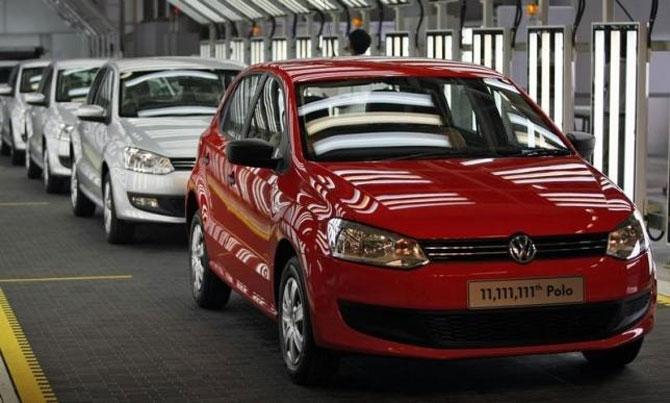
Domestic sales in these months were down 30 and 49 per cent, respectively.
The global vehicle emissions scandal at automobile maker Volkswagen and its consequent recalls has weakened its sales in both the Indian market and of export from the India unit.
Till now the fifth largest exporter of passenger vehicles from India, it had seen double-digit growth in shipments in the first six months of the current financial year.
At a little over 12 per cent, this was significantly higher than the industry’s export growth of 3.9 per cent, showed data from the Society of Indian Automobile Manufacturers.
The emission scandal erupted in September.
Exports in October and November fell 28 per cent and 17 per cent, respectively, over the same period last year.
Domestic sales in these months were down 30 and 49 per cent, respectively.
Considering the Christmas season demand from export markets, the November shipments should have not dropped at all.
However, “there hasn’t been a weakness in the demand for exports”, maintained Andreas Lauermann, president & managing director, Volkswagen India, in response to an e-mailed query.
Export demand, said the company, was only of petrol cars and the emission case related only to diesel vehicles.
In the year ended March 2015, Volkswagen India’s exports grew 95 per cent, to 64,994 units.
Going by the trend since October, this year could end with flat growth or a small decline.
However, giving the calendar year data, the company said it expected to ship 69,000 vehicles in 2015 against 66,000 units in 2014, marginal growth.
Mexico is the largest export destination for the company here, whose factory is at Chakan, close to Pune. The company exports two models of cars, the Polo and Vento, from India.
Another important destination for us would be Argentina. We are currently ramping up our exports to this South American market,” said Lauermann.
The Chakan unit became operational in 2009, with Rs 3,800-crore (Rs 38-billion) investment. Its annual capacity is 130,000 vehicles.











 © 2025
© 2025